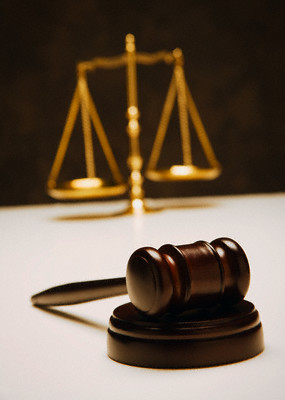My services & the court process
This is a brief summary of the court process from your first appearance to the trial date to help you understand some basic information about the problems you would typically deal with in court.
Please note that this information is not complete and it does not constitute legal advice in respect to your case. Each case is different, and I would be happy to discuss your case with you at my office. Please click on the Free Initial Consultation link, for further information.
Before your court date
I recommend that you speak with a lawyer before your First Appearance in court. Your interests are best protected when you are well informed with respect to the charges you are facing and the allegations that have been made against you. You are entitled to full disclosure of the particulars prepared by the prosecutor. This includes a copy of the information, a copy of the criminal record, a copy of the report to prosecution, and any other documentation that investigators may have prepared in your case. I will review the particulars with you and assess the strength of the prosecution’s case. At this point, I will provide you with initial legal advice on what are the best legal options available in your case.
First Appearance
Each and every court appearance has a specific purpose depending on what stage of the proceeding you are at. A first appearance is not a trial. You should not make any hasty decisions with respect to your pleadings without first familiarizing yourself with the particulars and without knowing what the consequences of your plea would be.
If the particulars are not complete on your first appearance, you should seek an adjournment for the purpose of further disclosure. You are entitled to know the information that will be used against you at trial. I will make sure that you have been provided with full disclosure and go over the key aspects of the disclosure with you.
Bail Hearing
If you are appearing in court on an “in custody basis”, you are entitled to a bail hearing (also called Judicial Interim Release) within 24 hours of your arrest. You have the right to know the charges, the allegations against you, and the position that the prosecutor is taking regarding your release. If the prosecutor is seeking an order for your detention, you should find out the basis of their position.
Most typically, prosecutors will seek to detain if 1) you have a history of poor attendance in court; 2) there is a substantial likelihood that you might re-offend if released; 3) or when there are significant concerns regarding the protection of the public and/or any interference with the administration of justice. The legal case law with respect to these three sets of grounds is quite extensive and complex.
If you are being released on bail, you should pay close attention to the conditions that the prosecution is asking the court to impose on your release. For example, a condition not to have any contact with a member of the family is based on concerns that the prosecutor may have for the protection of the complainant. Your lawyer will advocate on your behalf to the judge about your position regarding these protective conditions.
Arraignment Hearing
This is a significant stage of the criminal proceedings. Going ahead with an arraignment hearing without having an informed opinion about the strength of prosecutor’s case is a big mistake. You should prepare yourself before the arraignment hearing, so that you understand the charge, you have assessed of the prosecution’s case, and you know what your chances are to succeed in trial. Please keep in mind that knowing your charges does not necessarily mean that you understand them. Each and every offence has a number of legal elements that the prosecution is required to prove in your trial. Your lawyer will analyze those elements carefully utilizing the applicable case law.
Trial Confirmation Hearing
The Trial Confirmation Hearing is another key aspect in the court process. This is where you will get a better idea about the fashion in which the prosecution intends to run their trial. The purpose of this hearing is to make sure that the parties involved are prepared to go ahead with the trial. You should take advantage of this hearing to find out whether the prosecutor is ready to proceed, how many witnesses they are calling, and other important issues with respect to the logistics of the trial.
Trial
You guessed right, running a trial without a lawyer is probably not a good idea. While you have the right to represent yourself in court without a lawyer, your interests are better protected when a lawyer is defending your case. The trial process can be very complex. Many trials are not just about looking into facts that concern the merits of the case before the court. They quite frequently involve mini trials within the actual trial that focus their attention on Charter of Rights and Freedoms issues, the resolution of which could substantially affect the outcome of your trial. This area of law is very dynamic and complex. It often requires lawyers to conduct legal research of the most recent case law on the various issues that may come up unexpectedly during a trial.





